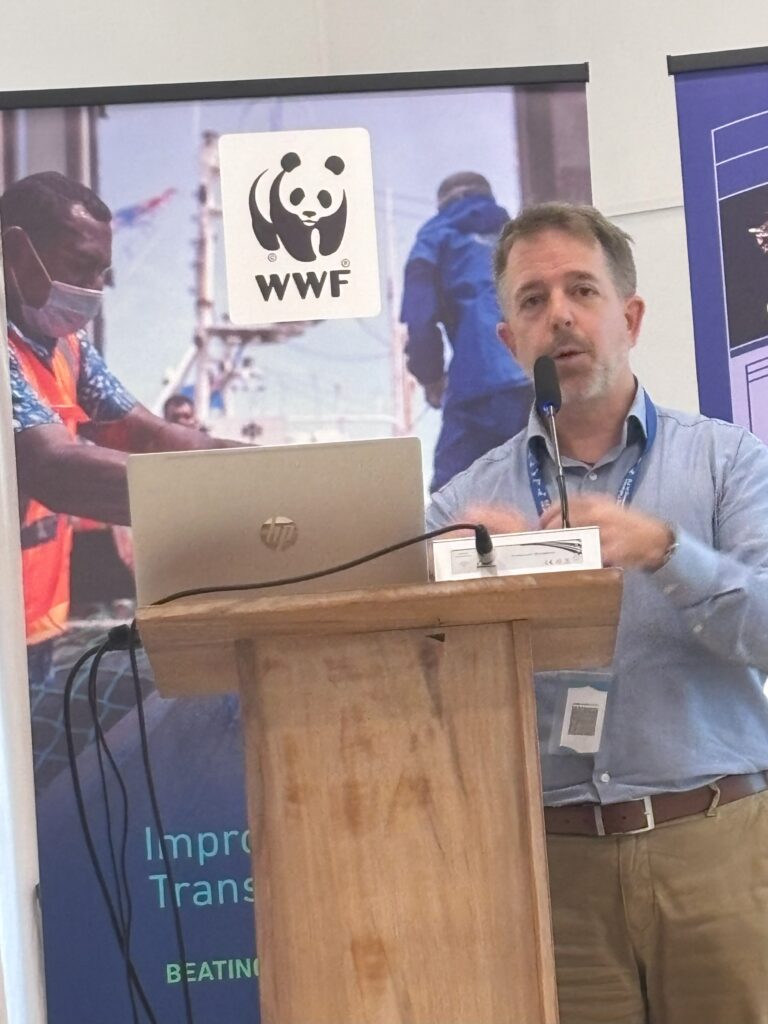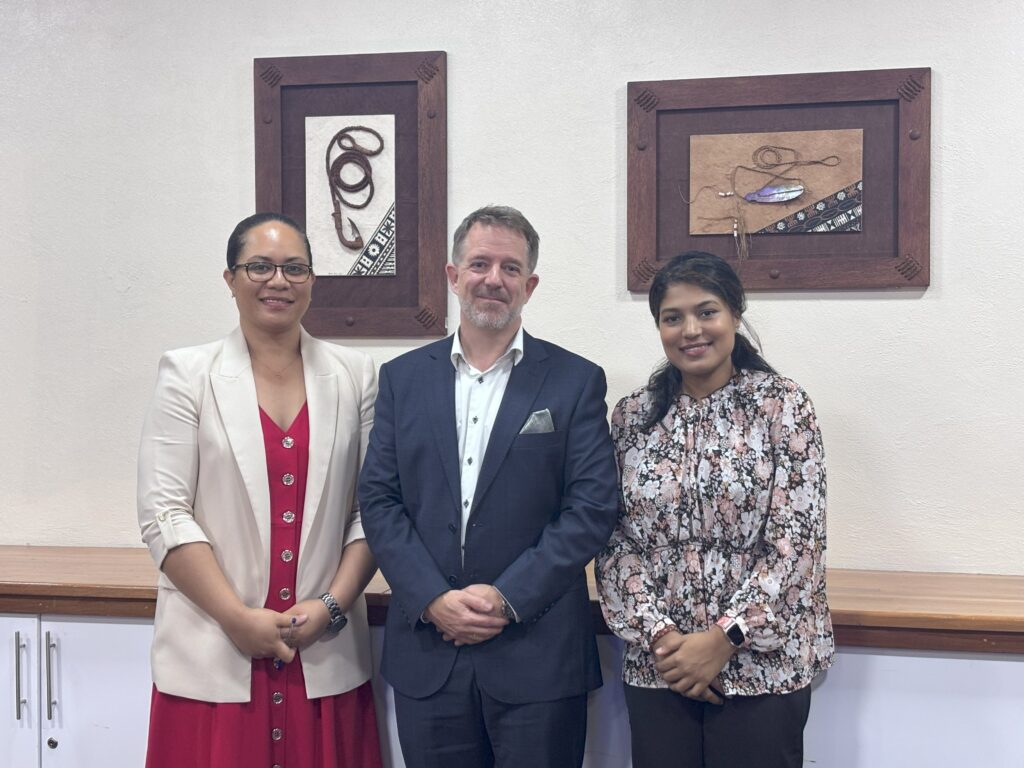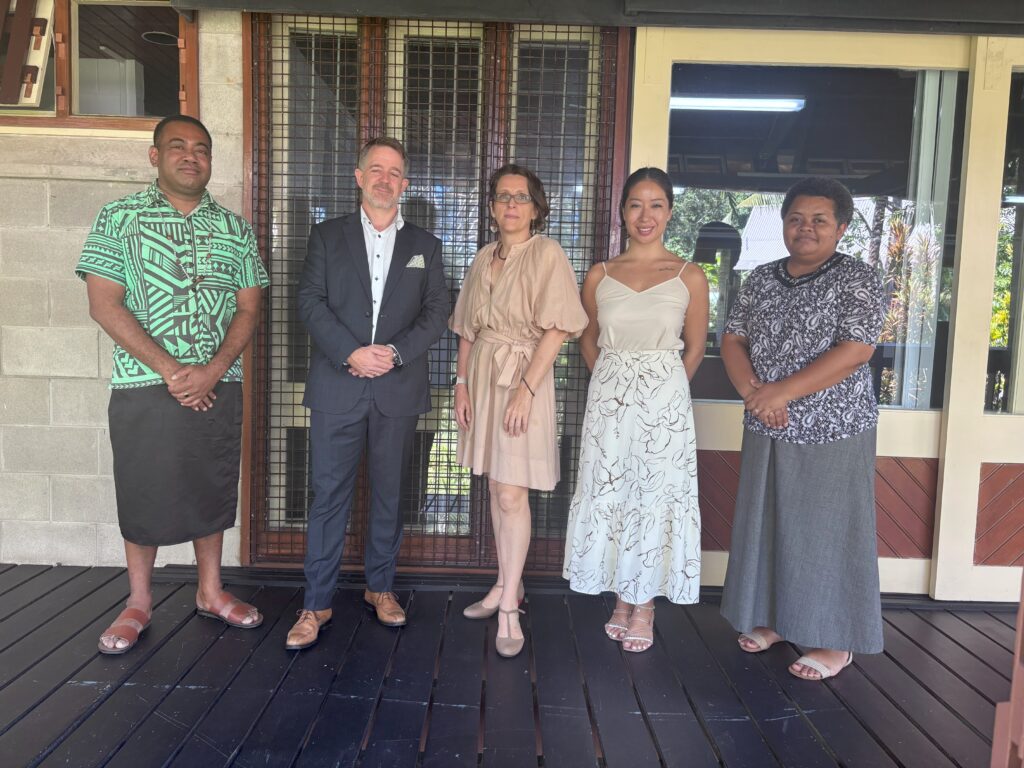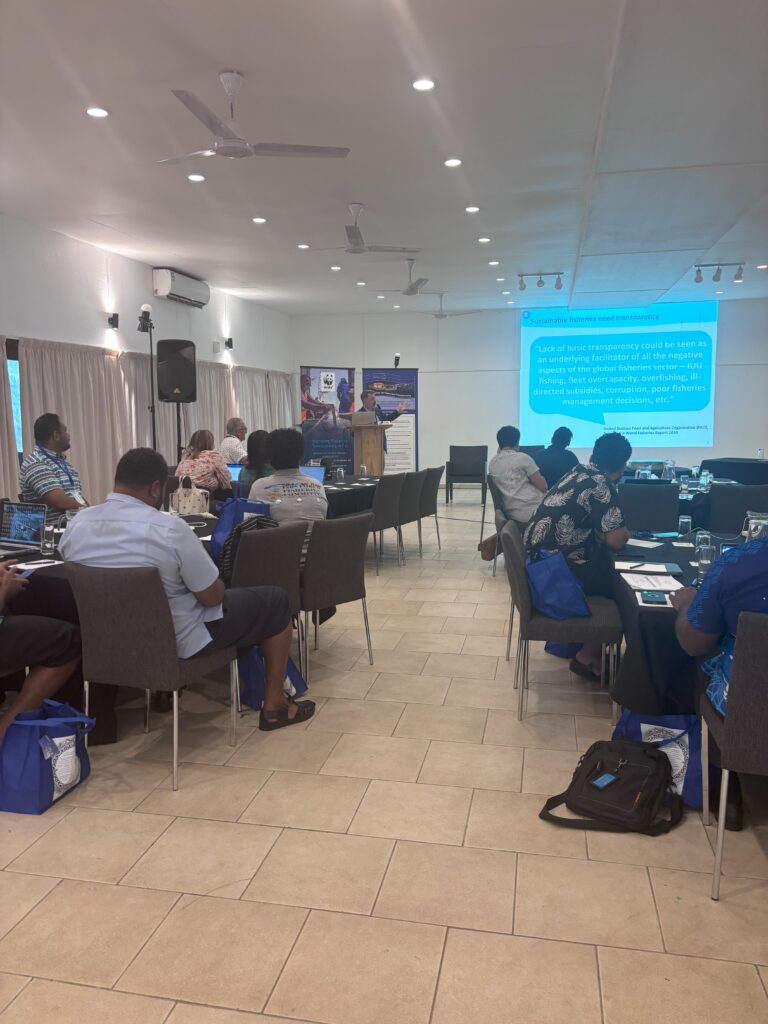Fiji transparency workshop marks first FiTI mission in the Pacific
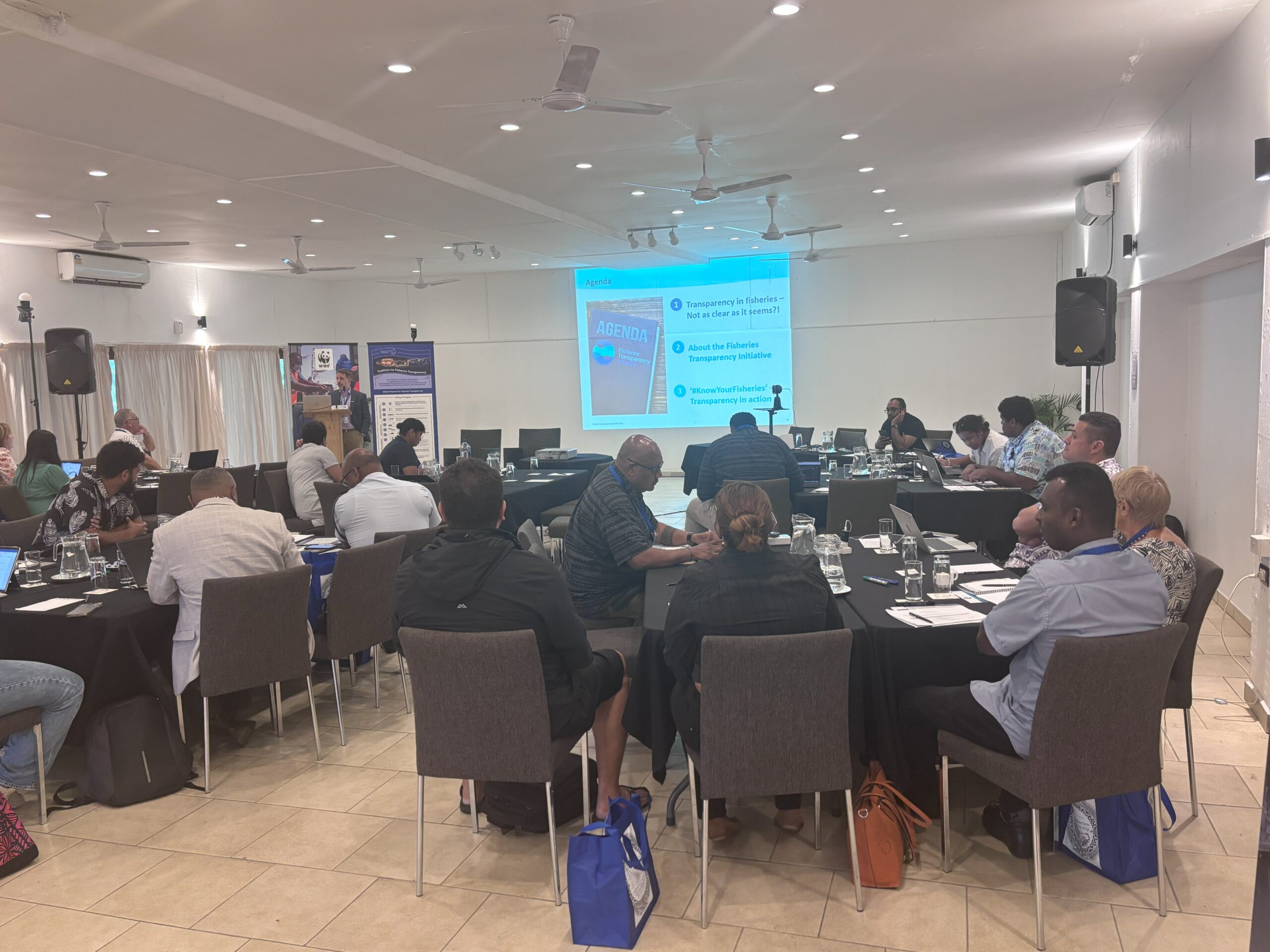
The Fisheries Transparency Initiative (FiTI) conducted its first ever mission to the Pacific region via a country visit to Fiji from 4-8 November 2024.
Represented by FiTI’s Executive Director Mr Sven Biermann and FiTI’s Fiji-based Regional Coordinator for the Pacific, Ms Leba Dranivesi, the International Secretariat participated in a three-day workshop on fisheries transparency organized by the World Wide Fund for Nature (WWF). This was the second workshop on fisheries transparency organized by WWF, and was attended by different Government Ministries, businesses and civil society organizations (CSOs). In the margins of the workshop, the International Secretariat also held discussions with the Ambassador of the Federal Republic of Germany and Special Envoy for the Pacific Island States, Dr Andreas Prothmann. The FiTI also met with officials from the Wildlife Conservation Society (WCS), United Nations Office on Drugs and Crime (UNODC), the Pacific Islands Forum Secretariat (PIFs) and the University of the South Pacific (USP).
The discussions with these different organisations centered around the FiTI’s core role and work in the different regions around the world, as well as the work now carried out in Fiji and the Pacific. Each organisation was receptive and gave valuable feedback on their current mandate, including insight into their work in Fiji and the Pacific. Attendees also discussed possible synergies with the FiTI, both locally and globally.
During the transparency workshop, Mr Biermann gave two presentations; the first on Improving Fisheries Transparency in Fiji by joining the Fisheries Transparency Initiative and the second on the FiTI multi-stakeholder process and the benefits of inclusive governance for Fiji.
The International Secretariat provided examples of how implementing the FiTI could benefit Fiji, drawing upon experiences in other FiTI-implementing countries. Participants were very interested in seeing Fiji joining the FiTI and its underlying multi-stakeholder participation model; however, all participants agreed that the decision to join the FiTI would require political will from Fiji’s national authorities. It was also mentioned that while many of the relevant fisheries management information – as requested under the FiTI Standard – is available, national authorities lack the means to make such data easily accessible to the general public.
Furthermore, participants of the workshop were also informed about the FiTI’s relationship with the Coalition for Fisheries Transparency (CFT), which was represented by a member of the CFT Secretariat in this workshop. In particular the initial confusion among local participation whether CFT and FiTI represent competing engagements regarding fisheries transparency were clarified. Both initiatives (i.e. FiTI and CFT) clarified that the CFT’s Charter and the FiTI’s Standard have been developed independently with different levels of stakeholder involvement and partially for different purposes. For example, the CFT Charter advocates for requirements that go beyond the purpose of strengthening participatory governance in fisheries, such as targeting illegal fishing or human rights and labour abuses. Hence, several policy principles of the Charter are not part of the FiTI Standard, such as the publication of vessel positions, control systems that ensure seafood is legal and traceable or to stop the use of flags of convenience by fishing vessels. At the same time, the CFT Charter advocates for the adoption of some policy principles that are already included in the FiTI Standard. This relates to principle 2 on fishing vessel information as well as principle 9 on fisheries data and participation in fisheries decision-making.
Participants of the workshop found it particularly appealing to establish a multi-stakeholder committee in Fiji to have a standardised means for stakeholder participation and to discuss further the aspects of fisheries transparency, including those required under the FiTI Standard as well as those principles that go beyond fisheries management, as advocated by the CFT Charter.
The International Secretariat will continue discussions with authorities and stakeholders in Fiji to support the nation towards improving the transparency of its fisheries management by implementing the FiTI.
